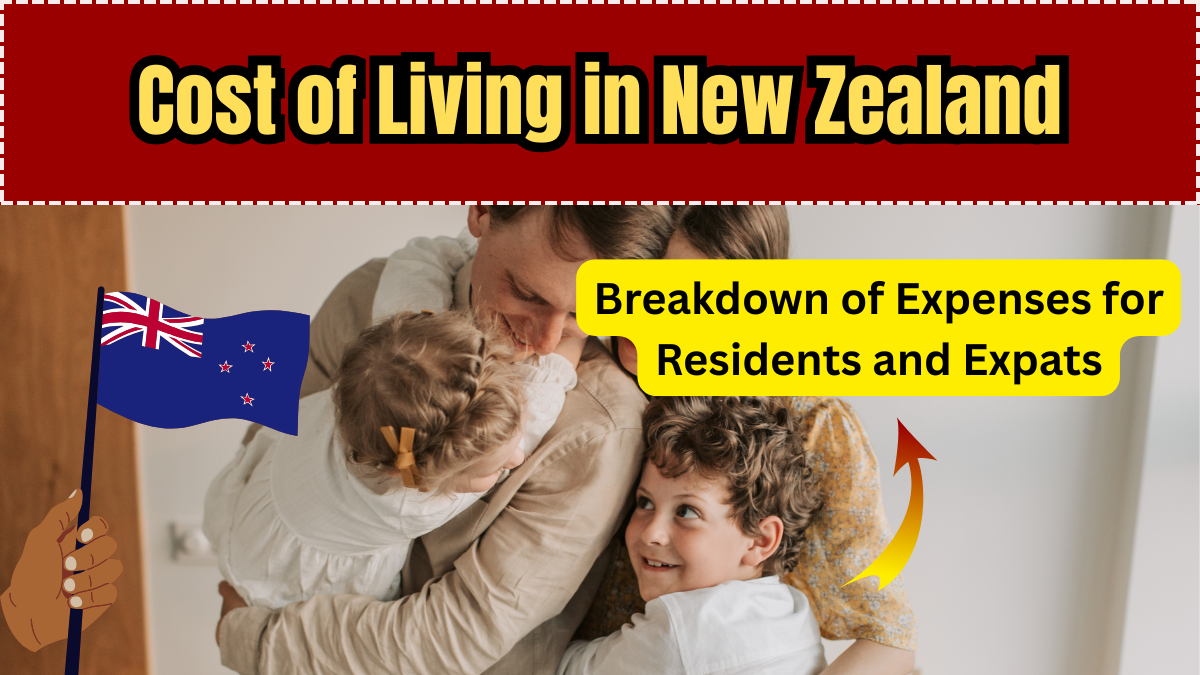As we move into 2025, understanding the cost of living in New Zealand has become more important than ever for both locals and expats. With evolving economic conditions, city-specific variations, and global inflationary trends, it’s crucial to stay informed on where your money goes in daily life.
This article explores the NZ living expenses 2025, offering a city-by-city comparison, insights for expats, and budgeting tips for those planning to live or relocate to New Zealand.

Overview of Cost of Living in New Zealand 2025
The cost of living in New Zealand in 2025 has seen a modest rise compared to previous years, influenced by increased housing costs, utility charges, and general consumer prices. Despite this, the country remains one of the most livable destinations thanks to its clean environment, excellent healthcare system, and balanced lifestyle.
Whether you’re a student, working professional, retiree, or expat, understanding how NZ living expenses 2025 vary across the country is essential for planning your financial future.
City-by-City Comparison of Living Expenses
New Zealand’s major cities show considerable differences in living costs. Here’s a breakdown of the main cities in 2025:
Auckland
Auckland remains the most expensive city, with high housing and transport costs. A single person’s estimated monthly costs (excluding rent) are around NZD 1,600, while a family of four may require over NZD 5,500. Cost comparison NZ cities consistently place Auckland at the top due to its popularity and infrastructure.
Wellington
Wellington offers a slightly more affordable alternative to Auckland. Rent and groceries are more moderate, with public transport remaining affordable. Living in New Zealand is generally easier to budget here for public servants and young professionals.
Christchurch
Christchurch is known for balanced living. With stable rental rates and lower utility bills, the city continues to be a favourite among families. This makes it an appealing option when doing a cost comparison NZ cities analysis.
Dunedin and Hamilton
These cities are ideal for students and retirees due to their lower housing and transport costs. Dunedin, in particular, is known for affordable groceries and healthcare, while Hamilton remains a growing tech hub.
Key Expense Categories for 2025
To provide a clearer view of NZ living expenses 2025, here are the main categories to consider:
-
Housing: Rental prices have gone up 4-6% year-on-year, with the average rent in Auckland now around NZD 2,400/month for a 2-bedroom apartment.
-
Utilities: Electricity and water costs remain manageable. A typical household pays around NZD 180/month in major cities.
-
Groceries: Grocery prices have seen a 3% rise. Weekly expenses can range from NZD 120–180 per person.
-
Transport: Public transport varies by city but remains cost-effective. Monthly passes are around NZD 130 in Auckland and NZD 100 in Christchurch.
-
Healthcare and Insurance: While public healthcare is subsidised, private insurance premiums have risen by 5% since 2024.
-
Education and Childcare: School and daycare costs remain steady but vary significantly between private and public institutions.
These estimates give a complete picture of cost of living in New Zealand for different household types.
Expat Living Costs in New Zealand
Expat living costs New Zealand can be slightly higher due to international transaction fees, private health insurance, and initial housing deposits. However, many expats find New Zealand’s lifestyle, safety, and work-life balance worth the premium.
For digital nomads and remote workers, cities like Wellington and Christchurch offer co-working spaces and more affordable living options. Those relocating for permanent work or retirement should prepare for higher up-front expenses, especially in NZ living expenses 2025 involving visa applications and health checks.
Budgeting Tips for 2025
Here are some key ways to manage the cost of living in New Zealand in 2025:
-
Use supermarket loyalty programs for grocery savings.
-
Opt for public transport or carpooling to cut commuting costs.
-
Consider housing outside central city zones.
-
Take advantage of government rebates and support, especially for families and seniors.
Proper financial planning is essential, especially when comparing cost comparison NZ cities to determine the most budget-friendly location.
FAQs
What is the average cost of living in New Zealand for a single person in 2025?
A single person typically spends between NZD 1,600 to NZD 2,000 per month, excluding rent. NZ living expenses 2025 vary widely based on city and lifestyle.
Which city in New Zealand is most affordable in 2025?
Cities like Dunedin and Hamilton offer the most budget-friendly living costs, especially for students and retirees, based on current cost comparison NZ cities data.
How much does housing cost in New Zealand in 2025?
Rental costs range from NZD 1,200/month in smaller cities to over NZD 2,500/month in Auckland for a 2-bedroom apartment, making housing a major part of the cost of living in New Zealand.
Are living costs higher for expats in New Zealand?
Yes, expat living costs New Zealand can be slightly higher due to health insurance and visa-related expenses, though long-term expats often adapt well and find good value.
Has the cost of living increased significantly since 2024?
Yes, the NZ living expenses 2025 have risen by 3–5% due to inflation and increased housing and utility prices, though the country remains more affordable than many Western nations.
Conclusion
The cost of living in New Zealand in 2025 reflects a balanced mix of rising costs and ongoing affordability, depending on location and lifestyle. While cities like Auckland remain expensive, alternatives like Christchurch and Dunedin provide excellent value. Understanding NZ living expenses 2025 and conducting a thorough cost comparison NZ cities analysis can help residents and expats alike make informed choices. Whether you’re considering a move or just adjusting your budget, this guide will help you navigate New Zealand’s evolving economic landscape.
Click here to know more.
